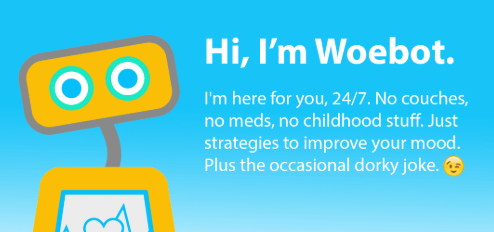In a time when stress, anxiety, and emotional fatigue are reaching global highs, a quiet revolution in sound therapy just made waves at the 2025 World Artificial Intelligence Conference (WAIC). The AI Music Therapy Pod, unveiled by the AIMT Lab of the Shanghai Conservatory of Music, isn’t just a sleek piece of technology — it might be a new chapter in personalized mental health support.
This dome-shaped innovation brings together real-time biometric sensors, cutting-edge AI, and neuroscience to generate personalized musical experiences designed to heal. Whether you’re battling burnout or just seeking a moment of peace, this pod may have the tune your nervous system craves.

A Closer Look at the AI Music Therapy Pod Unveiled at WAIC 2025
What exactly is this AI music therapy pod?
Think of it as an immersive, self-contained wellness chamber that uses AI to analyze your current mental and physical state — and then generates music that’s specifically designed to help you heal or relax.
Developed by the AIMT Lab (Artificial Intelligence + Music Technology) at the prestigious Shanghai Conservatory of Music, the pod was a standout at WAIC 2025. It’s designed for clinical settings, educational institutions, corporate wellness rooms, and even public spaces like libraries or airports.
How It Works: Tech Under the Hood
At the heart of the pod is an advanced multi-sensor system that captures your real-time physical and emotional signals:
Brainwave sensors track neural activity (alpha, beta, and theta waves).
Heart rate monitors gauge stress or calm levels via variability metrics.
AI algorithms analyze this biometric data and match it with curated therapeutic music profiles.
Immersive 360° acoustics and lighting environments enhance the sensory impact.
The pod uses a machine learning model trained on thousands of clinical case studies and musical compositions to determine what kind of music each individual needs at any given moment. From calming ambient tones to energizing classical loops, the generated soundscape adapts dynamically as your body and mind shift during the session.
Why AI Music Therapy Is Gaining Global Attention
The release of the AI music therapy pod at WAIC 2025 wasn’t just a product launch — it was a symbolic moment marking how AI can bridge science and emotion.
Here’s why this matters:
Personalization in healthcare is trending. Generic stress relief methods don’t work for everyone. The pod responds in real time, making each session unique.
Music therapy is evidence-backed. Studies from the American Music Therapy Association show it can improve cognitive function, reduce anxiety, and even aid physical rehabilitation.
AI scales access. Certified music therapists are limited in number. This pod, powered by AI, offers consistent support anytime, anywhere.
It humanizes AI. Rather than replacing emotional care, this system enhances it — combining art and algorithm in a deeply empathetic way.
Where This Innovation Could Lead
Beyond WAIC 2025, the Shanghai Conservatory’s AIMT Lab has plans to pilot the AI music therapy pod in several environments:
Hospitals: As a complement to pre- and post-op care or for managing chronic pain.
Schools and universities: Helping students manage anxiety or attention disorders.
Workplaces: Serving as on-site “mental reset” stations in high-stress industries.
Rehabilitation centers: Supporting recovery for PTSD, stroke, or addiction.
Future upgrades are already being discussed — such as incorporating voice recognition, emotional tone detection, and integration with wearable health data like smartwatches and rings.
Expert Reactions to the AI Music Therapy Pod Unveiled at WAIC 2025
Dr. Liu Ming, a music cognition specialist at Tsinghua University, called the pod “a milestone that may democratize access to emotional health support through AI.”
Meanwhile, WAIC attendees noted how the pod stood out from more business-centric showcases, offering a reminder that AI isn’t just about efficiency — it can also be about care.
Real Data: Music Therapy in Numbers
According to WHO, depression and anxiety cost the global economy $1 trillion annually in lost productivity.
A 2023 Harvard study showed music therapy reduced patient anxiety by 35% in hospital settings.
AIMT Lab's internal testing reported a 70% user-reported reduction in stress after a 10-minute pod session.
FAQs About the AI Music Therapy Pod Unveiled at WAIC 2025
Q1: Can I use the pod without any medical training?
Yes. The AI music therapy pod is designed for intuitive, plug-and-play use. No therapist or operator is needed during standard sessions.
Q2: Is the music generated or pre-recorded?
Both. The pod uses generative AI to compose in real time based on emotional input, but also draws from a licensed therapeutic music database.
Q3: Is it safe for people with mental health conditions?
Yes, and it’s currently undergoing clinical validation for conditions like anxiety, insomnia, and mild depression.
Q4: Will this replace human music therapists?
No. It’s meant to extend their reach and provide support in between or outside of therapy sessions.
Q5: When will it be available to the public?
The AIMT Lab is planning a limited commercial rollout in Q4 2025, focusing on hospitals and educational institutions in Asia and Europe.
Conclusion: Why This Matters
The AI music therapy pod unveiled at WAIC 2025 shows how AI is entering a more human-centered chapter. It’s no longer just about logic, code, and speed — it’s also about listening, empathy, and healing.
By using sound to meet people where they are emotionally, this innovation from the Shanghai Conservatory may pave the way for a new genre of intelligent care. Whether you're a stressed-out executive, a student facing exam anxiety, or a patient in recovery, your next session of relief might just start with a heartbeat and a song — generated by AI.
Learn more about AI MUSIC



